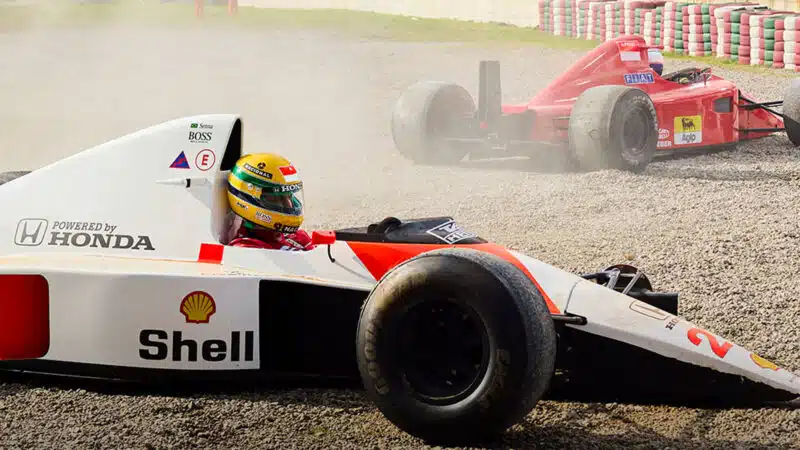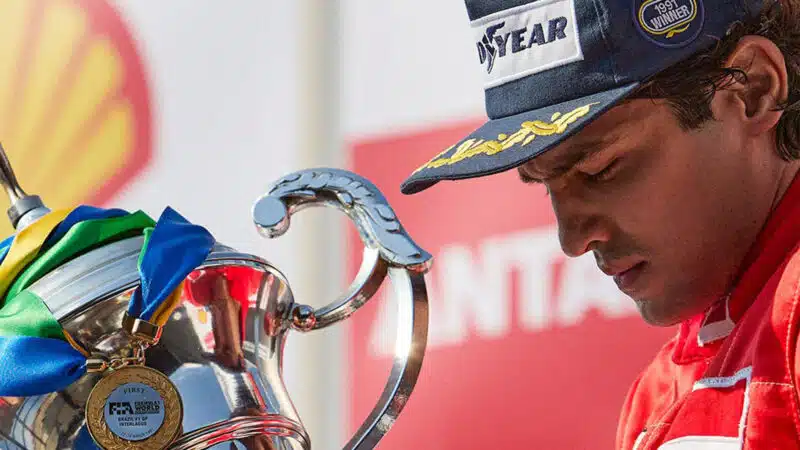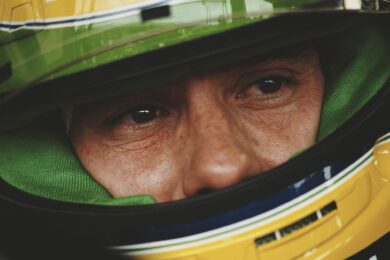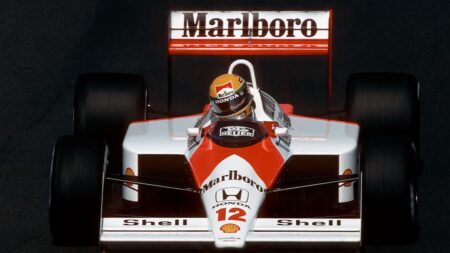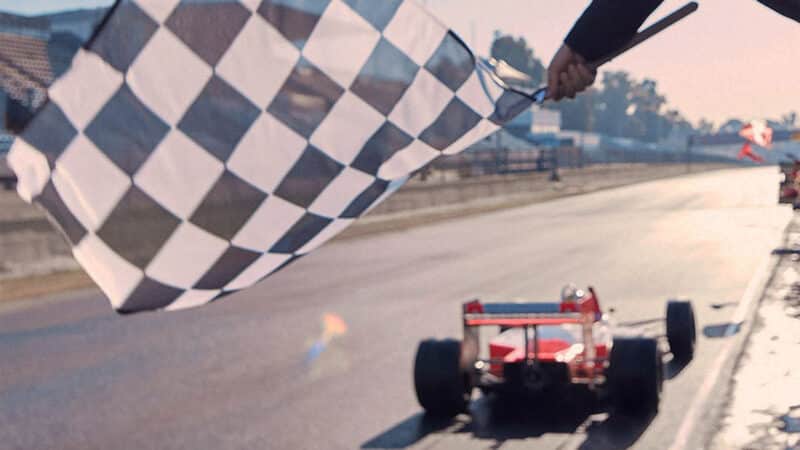Many of the racing scenes appear more realistic than those shown in previous efforts like Rush and Le Mans ’66, but you get the impression in Senna that the more expensive the car is, the slower it seems to go on track.
As the story winds its way through the ‘80s, so the accompanying pop soundtrack gets cheesier and more saccharine, peaking with the Brazilian victory theme tune Tema de Vitoria.
Some of the casting is spot on, while elsewhere it’s a bit wayward. Keke Rosberg isn’t exactly the king of cool in his portrayal here, but James Hunt is the charismatic Senna supporter behind the commentator’s mic – cigarette in mouth, glass of red in hand.
There’s some nice lateral thinking with karting scenes interposed with F1 wet-weather heroics while the series, like Drive to Survive, does elegantly tap into a lot of what makes the world championship alluring: 200mph heroes racing in a different glamorous location every fortnight, lauded by fans worldwide.
There’s a bit more green screen action than the average diehard might want to endure, but such is the viewing experience for any racing fan with this kind of title.
It’s hard to ignore some historical inconsistencies though. What is undeniable about Senna is that we’re very much getting an airbrushed version of the character.
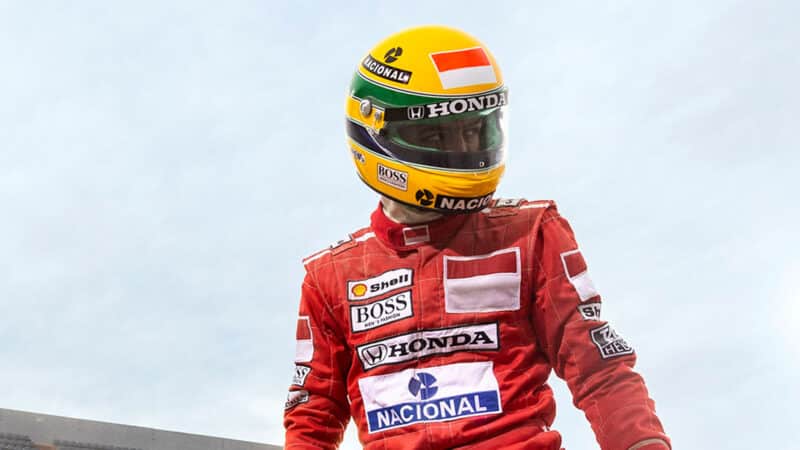
Netflix series shows an airbrushed version of the sometimes-controversial F1 legend
Netflix
“This series gives the opportunity to get to know the man behind the myth,” says director Julia Rezende in a behind-the-scenes extras feature.
Really? We’re not so sure. What it actually does is emphasise the bits the family seem to want us to believe, and shy away from the parts of his personality that were either more difficult to fathom or were simply unsavoury.
“Senna was an extremely complex individual, and the series seeks to gloss over that”
Senna was an extremely complex individual, and the series seeks to gloss over that.
His ideas of ‘good and evil’ weren’t quite as clear cut as the film makes out.
In conversations with the fictionalised version of his karting rival Terry Fullerton, the latter glorifies Senna’s willingness to go for a gap in any scenario.
This often led to dangerous situations playing out, letting his rivals choose whether to crash or concede the position.
